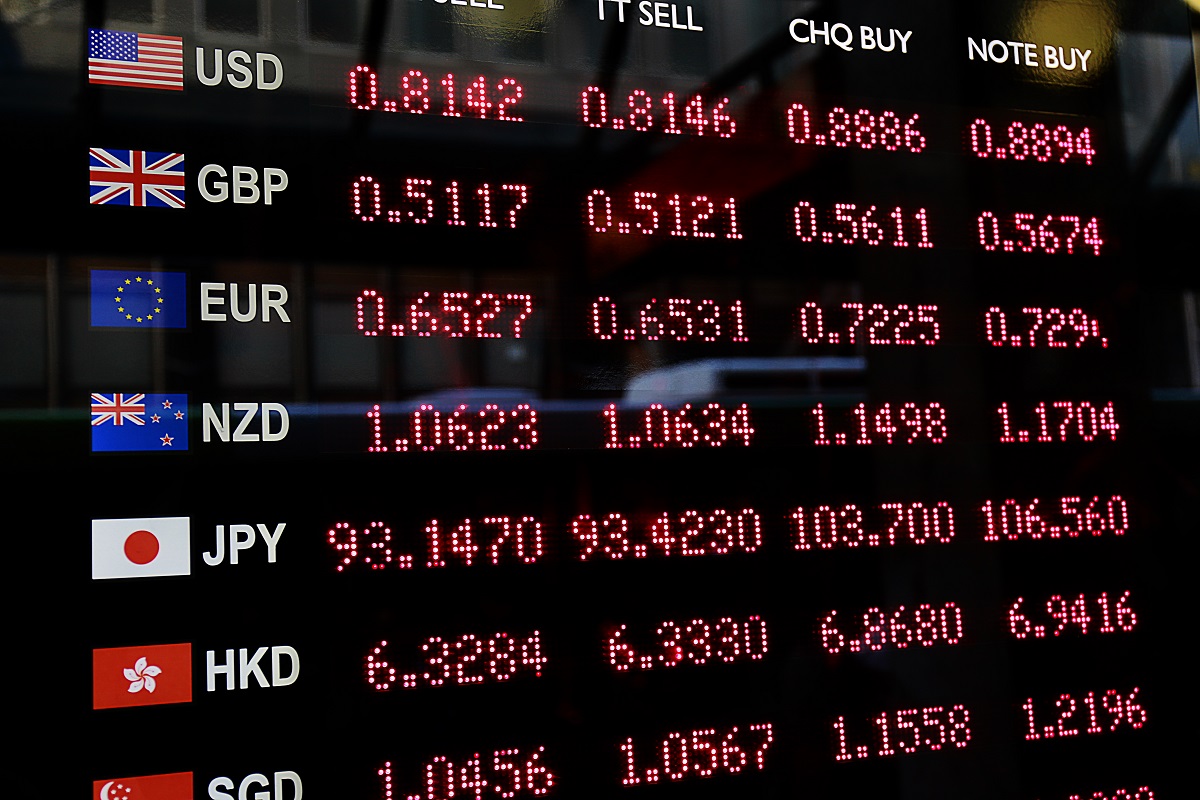The currency market is inescapably volatile, with exchange rates in constant flux.
Both economic and political factors impact rate movements – with the latter being especially influential in the wake of the UK’s vote to leave the EU in 2016. Brexit uncertainty and the topsy-turvy political landscape have resulted in a major escalation in volatility in not only the pound, but many of its currency peers.
Such instability is a major problem for any business that makes or receives international payments. Some exchange rates can fluctuate by as much as 5% in a couple of weeks, and such movement can not only cut into profit margins but make it extremely difficult to forecast and budget accurately.
The long shadow of Brexit
So far in 2019, we’ve seen some significant currency movement, with the GBP/EUR exchange rate trading in a range between €1.10 and €1.17 as a flurry of Brexit headlines rocked market sentiment, a trend that looks to persist over the coming months.
While Brexit may have been kicked down the road until at least October, removing the threat of an imminent no-deal Brexit, this is also likely to prolong the uncertainty that surrounds the whole process.
The consequence of this is that GBP exchange rates are likely to continue to fluctuate in the months to come, increasing the currency risk to any business that makes international payments.
Managing currency risk
If your business makes international payments, there are steps that can be taken to help protect your profit from any unfavourable shifts in the currency market.
For starters, it really pays to stay up to date with the latest currency news. By knowing what’s going on in the currency market and keeping an eye on exchange rates you can plan your transfers more effectively.
There are also a few currency transfer services you might want to consider, like forward contracts.
With a forward contract you can fix an exchange rate for up to two years, protecting your funds from any negative shifts in the market and helping you budget effectively.
Alternatively, if you want to wait to make your transfer until the exchange rate improves, you can use a limit order. With a limit order you set an exchange rate higher than the current rate, and your transfer will take place automatically as soon as the market reaches that level.
You can also use a rate alert to target a specific exchange rate – just pick the rate you want to achieve and get instant SMS and email updates once that rate is achieved.
These services are available with many leading currency transfer providers, and with the current currency volatility likely to persist for the foreseeable future, it could be time to explore your transfer options.
Your St. James's Place Partner will be able to advise you on which of our panel providers you would need to be referred to, given your particular circumstances for further advice in this area.
The currency market is inescapably volatile, with exchange rates in constant flux.
Both economic and political factors impact rate movements – with the latter being especially influential in the wake of the UK’s vote to leave the EU in 2016. Brexit uncertainty and the topsy-turvy political landscape have resulted in a major escalation in volatility in not only the pound, but many of its currency peers.
Such instability is a major problem for any business that makes or receives international payments. Some exchange rates can fluctuate by as much as 5% in a couple of weeks, and such movement can not only cut into profit margins but make it extremely difficult to forecast and budget accurately.
The long shadow of Brexit
So far in 2019, we’ve seen some significant currency movement, with the GBP/EUR exchange rate trading in a range between €1.10 and €1.17 as a flurry of Brexit headlines rocked market sentiment, a trend that looks to persist over the coming months.
While Brexit may have been kicked down the road until at least October, removing the threat of an imminent no-deal Brexit, this is also likely to prolong the uncertainty that surrounds the whole process.
The consequence of this is that GBP exchange rates are likely to continue to fluctuate in the months to come, increasing the currency risk to any business that makes international payments.
Managing currency risk
If your business makes international payments, there are steps that can be taken to help protect your profit from any unfavourable shifts in the currency market.
For starters, it really pays to stay up to date with the latest currency news. By knowing what’s going on in the currency market and keeping an eye on exchange rates you can plan your transfers more effectively.
There are also a few currency transfer services you might want to consider, like forward contracts.
With a forward contract you can fix an exchange rate for up to two years, protecting your funds from any negative shifts in the market and helping you budget effectively.
Alternatively, if you want to wait to make your transfer until the exchange rate improves, you can use a limit order. With a limit order you set an exchange rate higher than the current rate, and your transfer will take place automatically as soon as the market reaches that level.
You can also use a rate alert to target a specific exchange rate – just pick the rate you want to achieve and get instant SMS and email updates once that rate is achieved.
These services are available with many leading currency transfer providers, and with the current currency volatility likely to persist for the foreseeable future, it could be time to explore your transfer options.
Your St. James's Place Partner will be able to advise you on which of our panel providers you would need to be referred to, given your particular circumstances for further advice in this area.
The currency market is inescapably volatile, with exchange rates in constant flux.
Both economic and political factors impact rate movements – with the latter being especially influential in the wake of the UK’s vote to leave the EU in 2016. Brexit uncertainty and the topsy-turvy political landscape have resulted in a major escalation in volatility in not only the pound, but many of its currency peers.
Such instability is a major problem for any business that makes or receives international payments. Some exchange rates can fluctuate by as much as 5% in a couple of weeks, and such movement can not only cut into profit margins but make it extremely difficult to forecast and budget accurately.
The long shadow of Brexit
So far in 2019, we’ve seen some significant currency movement, with the GBP/EUR exchange rate trading in a range between €1.10 and €1.17 as a flurry of Brexit headlines rocked market sentiment, a trend that looks to persist over the coming months.
While Brexit may have been kicked down the road until at least October, removing the threat of an imminent no-deal Brexit, this is also likely to prolong the uncertainty that surrounds the whole process.
The consequence of this is that GBP exchange rates are likely to continue to fluctuate in the months to come, increasing the currency risk to any business that makes international payments.
Managing currency risk
If your business makes international payments, there are steps that can be taken to help protect your profit from any unfavourable shifts in the currency market.
For starters, it really pays to stay up to date with the latest currency news. By knowing what’s going on in the currency market and keeping an eye on exchange rates you can plan your transfers more effectively.
There are also a few currency transfer services you might want to consider, like forward contracts.
With a forward contract you can fix an exchange rate for up to two years, protecting your funds from any negative shifts in the market and helping you budget effectively.
Alternatively, if you want to wait to make your transfer until the exchange rate improves, you can use a limit order. With a limit order you set an exchange rate higher than the current rate, and your transfer will take place automatically as soon as the market reaches that level.
You can also use a rate alert to target a specific exchange rate – just pick the rate you want to achieve and get instant SMS and email updates once that rate is achieved.
These services are available with many leading currency transfer providers, and with the current currency volatility likely to persist for the foreseeable future, it could be time to explore your transfer options.
Your St. James's Place Partner will be able to advise you on which of our panel providers you would need to be referred to, given your particular circumstances for further advice in this area.




